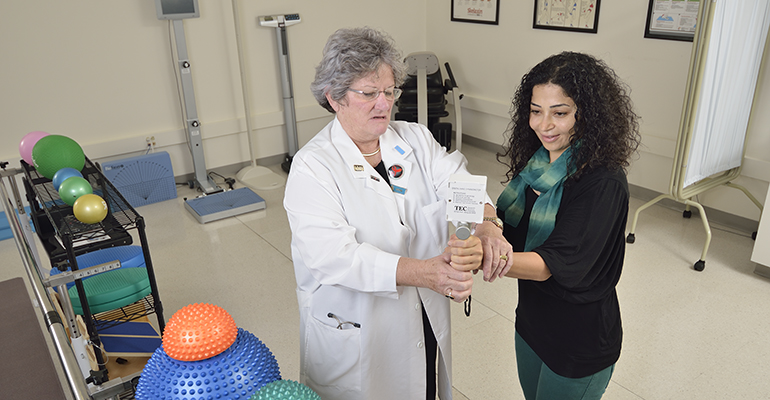BTN.com staff, BTN.com staff, January 24, 2015
Like the Superfriends of Saturday morning cartoon fame, the Nursing, Communication Arts and Sciences, and Engineering colleges at Michigan State University are combining their respective powers for the common goal of improving the lives of the people around the world.
 The colleges are collaborating on a research initiative that?s focused on creating and improving technologies and techniques that enhance health services everywhere. The program is called Trifecta, and it?s led by Shelia Cotten, a professor in the department of media and information at Michigan State.
The colleges are collaborating on a research initiative that?s focused on creating and improving technologies and techniques that enhance health services everywhere. The program is called Trifecta, and it?s led by Shelia Cotten, a professor in the department of media and information at Michigan State.
?Our goal is to increase interdisciplinary research, get people to talk to each other across campus, and create new knowledge and new research that can have a positive effect on society,? Cotten said.
Although Trifecta was initiated a couple of years ago, it was officially introduced in August with four primary areas of focus: health disparities, mobile health, big data and sensor technologies. Right now, there are two Trifecta projects underway in collaboration with the National Institutes of Health.
The first is developing an automated online health community for patients with diabetes, whereby diabetics seeking guidance on online health forums could be directed to or contacted directly by health professionals. The goal is to give users the ability to sort through the forum posts and pinpoint the ones that indicate a need for medical assistance rather than just general advice.
That project will be coordinated between the colleges of Engineering and Nursing, with the engineers guiding the nurses in the building and operation of an automated system that can mine online forums for that information.
The other NIH-funded study involves exploring strategies to use text messaging and social media to promote healthy infant feeding among adolescent women.
Although NIH has provided financial backing for these two projects, other Trifecta programs have been internally funded. However, external funding will be sought for those as they delve deeper into research, Cotton said.
?To do the really large-scale research, it does take [additional] funding,? Cotten said. ?One of the goals is the projects that we fund internally can help provide pilot data that can then be offered to large outside projects.?
[btn-post-package]To support Trifecta operationally, Michigan State currently offers a class called Interdisciplinary Research Collaboration that brings students from the three colleges together to learn how to work cooperatively. Cotten hopes that course evolves into a series of classes, which then results in a formal Trifecta Fellows program.
Researchers involved with Trifecta can also attract students to the programs through classes within their individual discipline.
Trifecta is currently accepting applications for future programs. Cotten hopes some of the future applications come from outside the campus.
?I want to link with different entities that may have a different focus,? she said. ?I would love to get external involvement from tech organizations, or companies that have products that need to be tested. I would like to have an external advisory board that can communicate with business, industry and local community leaders to help us find a better future.?







 Check out what's coming up next live on B1G+.
Check out what's coming up next live on B1G+. 